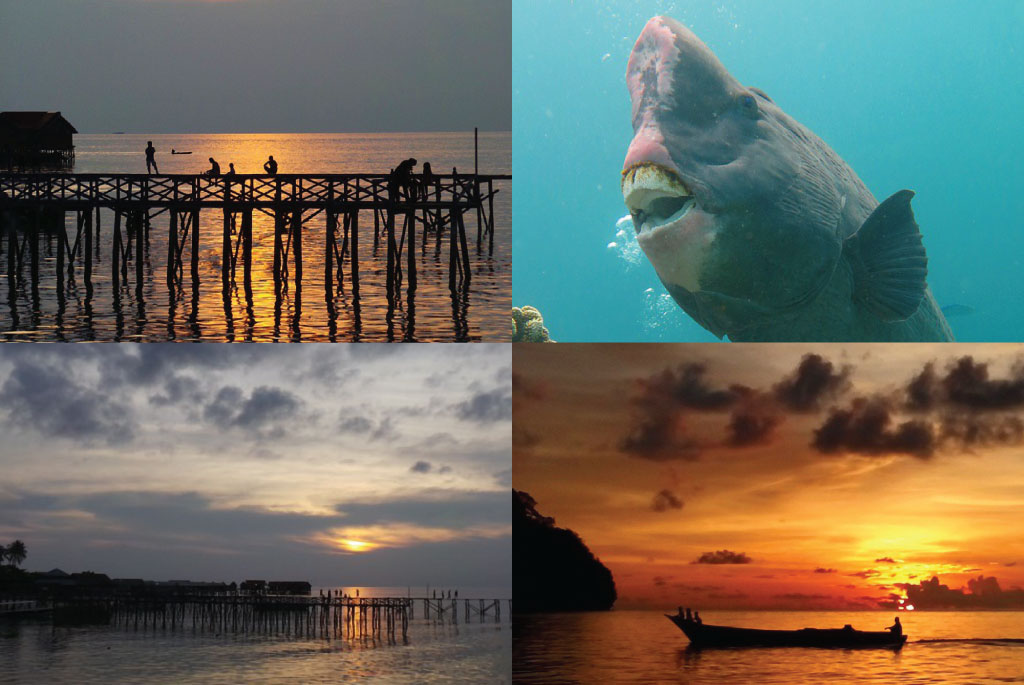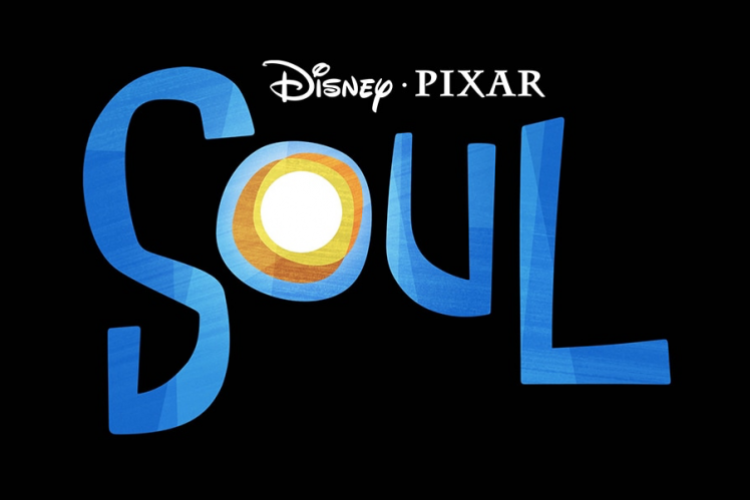A Million Ways to Travel with The Naked Traveler
Elsa Hestriana (E) talks to travel author Trinity the Naked Traveler (T).
by Ken Jenie




E
The Naked Traveler began with blogposts, when did you decide to document your traveling experiences into a writing and share it with people and why?
T
I’ve always enjoyed traveling since a long time ago and I always share my experiences with my friends. The Blogpost itself began in 2005. I was tired of telling people the same story over and over again so I decided to write them down and post them on a blog. Because internet is eternal and everyone can read it. It turns out people like it because it’s funny and the readers increased everyday. That’s when the demand to make it into a book came.
E
What’s the difference between writing a blogpost and a book?
T
There’s a funny story. During the process of making my writings into a book, I got many criticisms. Especially that in one of my writings I mentioned about nude beach. For me, eccentric stuff and something that has an element of porn are interesting because they’re still considered as taboo here. In my blog, it was a blogpost that created high traffic and got many comments from readers. But when we tried to put it into the book, it became a concern so we decided to cut the story. So the difference between blogpost and book is that with blog we can be more free because there’s no gatekeeper. But even though the stories went into editing process by the publisher, they don’t change the overall plot.
The stories in the following books didn’t 100% come from the blog. Each contained less and less stories from the blog. For example, my latest book, the one that tells about my year long Round-the –World trip, only 25% of the book were blogposts.The rest were new writings. Not everything that I post in my blog appear in the book. The books have other different stories.
E
You have a writing background from your family and you also have a degree in mass communication. Has being a travel writer always been your dream?
T
Actually when I was a kid, my dream was to become a flight attendant, but then I already began to wear glasses when I was in elementary school. Back then to become a flight attendant you cannot wear glasses. I wanted to become a writer because I like traveling. You know, flight attendants look so cool because they can travel a lot. When I graduated from high school and was trying to figure out what I wanted to study in university, I asked my grandmother for advice. She asked me what my interests were and I mentioned traveling, photography, and painting. So she told me to become a journalist and study communications. When I was young, I was involved as a journalist for my school’s publication. But then during my study and fieldwork, I began to think that I didn’t want to be a journalist because they don’t earn a high salary. So in the end, I worked more in the fields like marketing communications or public relations. It was tiring so I left them all behind and decided to become a full-time traveler and a freelance writer instead.
E
Many people believe that to travel a lot like you requires a lot of money and money can be a huge roadblock for someone to travel. Do you agree with this?
T
I don’t agree. First, people always assume that I’m rich and have a lot of money because I keep traveling. But for me, it’s about priorities. I make traveling as my number one priority so I spend more money on traveling rather than anything else. Many people spend their money to buy branded bags or nice car – I prefer to travel. Second, today if you want to travel but you don’t have enough money there are ways to overcome the problem. If you have a strong will, you can ask for sponsors, but then the question is: what is your leverage? Third, it doesn’t have to be expensive to travel. To have money is a must, but most of us tend to look for destinations first then collect the money later. But for me if you want to travel, see how much you have and then choose the destination. If you only have a little amount of money, then maybe you can go somewhere close to where you are or maybe even travel inside your own city, stay at your grandmother’s, or anything, be creative.
E
So it’s a matter of priority.
T
Sometimes we want too much. We want to go to the USA but we don’t have enough money, it’s unrealistic. Many people tell me that they want to travel a lot like me, but what matters is whether or not you are willing to sacrifice something for the sake of traveling.
E
In 2012 you started your Round-the-World (RTW) trip, what made you decided to go on that trip?
T
First, it was a plan I made with my best friend five years ago. We wanted to go to Machu Picchu, Peru. But once we made the plan, we felt that Machu Picchu is so far that it’s a pity to just spend two weeks there to only visit Machu Picchu and not other countries around it like Chile. So we decided to make it into a month. But again we felt it wasn’t enough. So after a while we decided to turn it into a-year trip.
Second, we wanted to make something different that no one in Indonesia has done before. Most traveling books are travel guides, and I have created traveling books that tell stories. So I wanted to make this trip into a special edition – to innovate.
Third, not many Indonesians know and have visited Latin America, and during that one year I traveled mostly to countries in Latin America. They really are the opposites of Indonesia. We are 12 hours ahead of them. So it was a personal curiosity about what they have there, as well as my intention to create something different and to add my personal experience.
What was the biggest challenge during the trip?
Getting visas were the biggest challenge, especially as an Indonesian passport owner. We all know that we need visas to visit almost every territory in the world. And because of that requirement I have been rejected, been told to leave the airplane, forced to travel longer distances, and many other things that we did for the sake of crossing over. It really hurts to realize that Indonesia was an unknown country, and when we applied for our visas they told us that Indonesia belonged to C-class category along with Sudan, Afghanistan, Mali, and Somalia. It felt really bad.
E
So how did you overcome with those problems?
T
My principle is to never regret anything that I have done. But I will regret it if I never tried. So even though I know it’s difficult and the possibilities are small, I still do it. If it gets rejected, then well there’s nothing I can do, but at least I tried.
E
Tourists often take pictures while traveling, especially with the presence of social medias that allow people to post pictures. Do you think taking many pictures decreased the essence of traveling itself?
T
Well, for me it’s up to the person. Traveling is an individual experience, each person has a different style and interprets things in different ways. The budget that each person has is also diverse, which affects the experience as well. So it’s really up to the person on what they want to do. Personally, I’m not that kind of person. Even until now, I’m very lazy to take pictures during my trip. I prefer to observe, pay attention to my surroundings, and interact with the locals. I think it’s only in Indonesia that people are so busy looking for internet connection. I like to focus more on the trip, I post the updates later once I’m back at the lodging and find a wifi connection. Today they even make it into a profession. You know, like celebrity tweets or instagram celebrities who are sponsored to travel and post their pictures in the social medias, and things like that are fine. Maybe it does seem decreasing the essence and value of traveling, but the question is whose essence? For them it’s not a problem. Well maybe for me it’s quite annoying to take pictures all the time. But then in the end I’m not traveling with them anyway.
E
What is the best destination you’ve ever been to?
T
Indonesia is still the best destination for me. Especially East Indonesia. I guess it’s because I enjoy beaches, underwater, and nature. I like to go abroad, but I also like to spend time and money exploring my country.
E
What do we miss when we’re not traveling in our own country?
T
We miss a lot of things. In my opinion, both traveling in your country and abroad are important. Before I traveled abroad, I’ve traveled a lot in Indonesia. Traveling around Indonesia makes us tougher as travelers. If we have traveled often enough in Indonesia, traveling anywhere in the world will seem much easier, trust me. On the other hand, we also have to travel abroad in order to appreciate more of our country.
The more we travel abroad, the more we love our own country. At least that works for me. So no matter how great other country is, like a proverb that says having a rain of stone in our own country is better than having a rain of gold in someone else’s country. So both are important.
E
What is the best thing about traveling?
T
The best things about traveling is meeting new people, seeing new sceneries, and getting new insights – I never experienced the same things twice. I hate routines, and by traveling I can get out of routines. It is a really good and beautiful feeling to wake up and see the beautiful sky, the unknown sky. You wake up and you think “where am I? I don’t recognize the room and the bed.” Also when you listen to languages you don’t understand. These are the experiences that I love. That’s the best thing about traveling. You can get out ouf your routines, and for me traveling has lots of benefits and no disadvantages. There are always some benefits in traveling – no matter how small, how far or how much you travel.
E
How has traveling affected you?
T
I don’t feel that traveling has changed me into a different individual. I don’t have that romance that make me feel like traveling is a way to find yourself. That’s not me. For me, traveling is traveling. Traveling changes me by making me a more knowledgeable individual, at least to lengthen a conversation with someone. Also, traveling is my profession, I call myself a full-time traveler. I don’t directly get paid by traveling, but when I write a book about it traveling feeds me.
Traveling is like a school without teachers who terrorize you. You gain knowledge and skills, and become a more tolerant human being.
E
What’s your advice for other travelers?
T
I always say that worrying gets you nowhere. Sometimes, we worry too much when we want to travel, what if this or what if that. Don’t mind it. Don’t worry too much. I’m sure that we are given common sense which we can use to survive. If you’re not sure enough, you can do some research from the internet etc.
The Naked Traveler Blog
The Naked Traveler Facebook Page
The Naked Traveler Twitter Page











